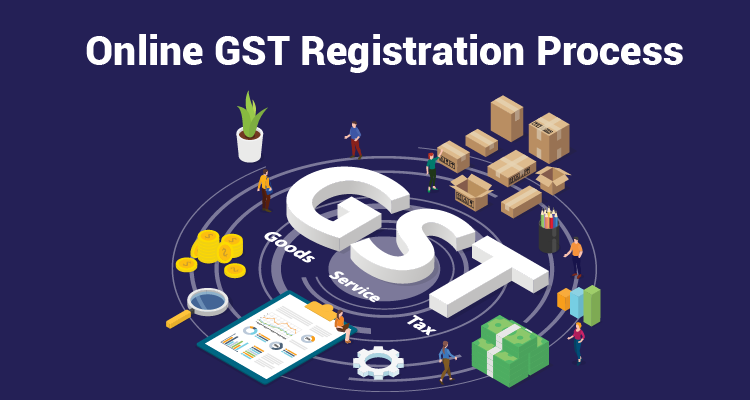Simplifying Your Singapore GST Registration: A Thorough Strategy
Simplifying Your Singapore GST Registration: A Thorough Strategy
Blog Article
The Ultimate Overview to Simplifying the GST Enrollment Refine and Needs for Small Company Owners

Recognizing GST Essentials
To realize the principles of the Product and Services Tax Obligation (GST) system, little business proprietors should initially recognize its underlying effects and principles. Under the GST regimen, services are required to sign up and accumulate tax on part of the government, ensuring openness and compliance.
One of the vital principles of GST is input tax credit history, which permits businesses to claim credit score for tax obligations paid on their acquisitions. Understanding these fundamental concepts is critical for tiny business owners to navigate the complexities of the GST system and guarantee conformity with the law.
Eligibility Criteria for Registration
Having established a fundamental understanding of GST principles, local business owners should now meet specific eligibility criteria to continue with the enrollment process. In India, entities engaged in the supply of goods or services with a yearly accumulation turn over going beyond Rs. 40 lakhs (Rs. 10 lakhs for unique category states) are needed to register for GST. Additionally, certain businesses such as those associated with inter-state supply of goods, informal taxable individuals, and those needed to pay tax under the reverse fee mechanism need to register for GST irrespective of their turn over. Organizations that were registered under the previous tax obligation regimen (BARREL, service tax, etc) are also mandated to sign up under GST. Agricultural organizations that only provide create out of primary manufacturing are excluded from GST registration. It is critical for local business owner to carefully analyze their eligibility based on these requirements to guarantee conformity with the law and prevent any penalties for non-compliance.
Files Required for GST Registration
.jpg)
Simplified Enrollment Process Actions
Complying with the collection and verification of the requisite records, the registration process for GST can be browsed via a collection of simplified actions developed to assist in reliable conformity for small business owners. Upon successful verification, an Application Reference Number (ARN) is issued, suggesting the completion of the GST registration process. By complying with these simplified steps, little her latest blog organization owners can efficiently register for GST and make sure compliance with tax policies.
Tips for Ensuring Compliance
To maintain governing adherence and operational integrity, persistent oversight and positive procedures are essential in making certain conformity with GST needs for tiny business proprietors. Small company owners must stay updated with GST regulations, submitting deadlines, and any type of modifications in tax rates to avoid penalties and maintain a good standing with tax obligation authorities. Participating in GST recognition workshops or training programs can boost understanding and conformity with GST regulations, ultimately benefiting the company in the lengthy run.
Conclusion
To conclude, small company owners need to recognize the fundamentals of GST, satisfy the eligibility standards, collect required documents, and adhere to the streamlined registration procedure actions to make sure compliance. By simplifying the GST registration see procedure and demands, small company proprietors can prevent penalties and run their services efficiently within the legal structure - Singapore GST Registration. It is critical for little company proprietors to stay informed and certified with GST policies to maintain a successful organization operation
Tiny service owners seeking GST registration must guarantee they gather and send the necessary records to complete the enrollment process effectively. The documents needed for GST look here registration generally consist of proof of service enrollment or consolidation, FRYING PAN (Permanent Account Number) card of the service identification, entity and address evidence of the promoters/partners/directors, photographs, address evidence of the area of business, bank account statements or terminated cheques, and consent forms. Going to GST recognition workshops or training programs can enhance understanding and compliance with GST laws, ultimately benefiting the service in the long run.
By streamlining the GST enrollment process and demands, little business owners can stay clear of penalties and run their businesses efficiently within the lawful structure. It is essential for little organization owners to remain enlightened and compliant with GST regulations to maintain a successful service operation.
Report this page